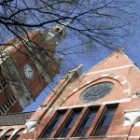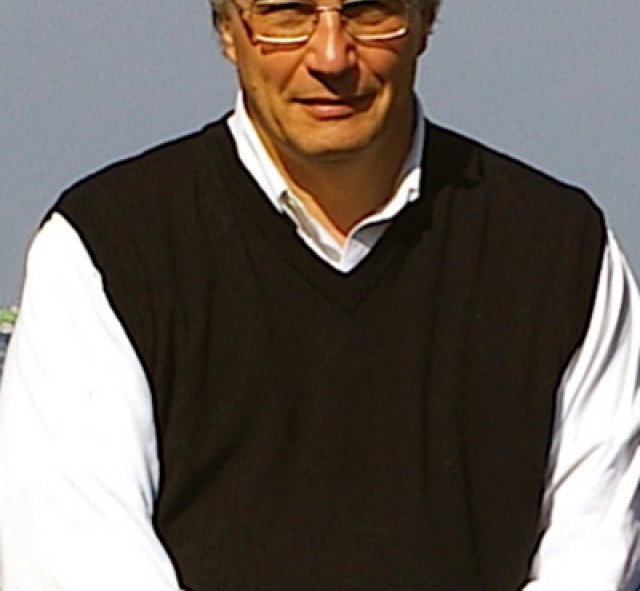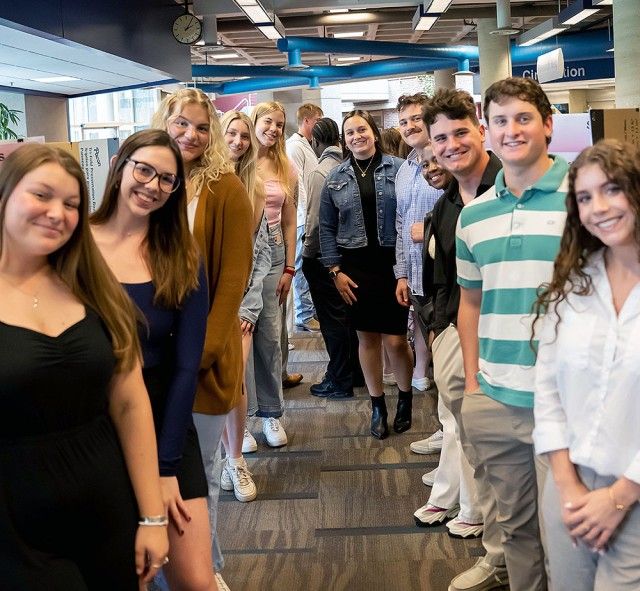SPRINGFIELD, Ohio — It may be half a world away on the map, but the Southeastern European nation of Bosnia-Herzegovina was the focus of a Wittenberg Uniersity Symposium titled “Preserving Goodwill In Multi-Cultural Societies: Lessons From Bosnia” on Sunday, Jan. 30.
The conference drew upon an honors class titled “Bosnia-Herzegovina–An Interdisciplinary Study,” which involves five Wittenberg students majoring in English, psychology, math, sociology and political science, and matches them with five students from the war-torn nation via a private chat room to collaborate on projects. Student presentations and discussions with two natives of Sarajevo, the capital of Bosnia-Herzegovina, highlighted the first part of the conference in Bayley Auditorium in the Barbara Deer Kuss Science Center. A banquet followed, featuring authentic Bosnian cuisine, music and a demonstration of the process of making Bosnian coffee.
Keith Doubt, professor of sociology and chair of the department, organized the conference and the class. The author of two books on Bosnia-Herzegovina and the sociology of the area during and after the wars of the 1990s, Doubt created the unique course as part of a pilot project. The on-going project utilizes a shared curriculum between Wittenberg University and the University of Sarajevo based on class work at Wittenberg and Web-based exchanges with students and faculty at University of Sarajevo.
University of Sarajevo professors, Asim Mujkic, director of the human rights center and professor of sociology, and Dino Abazovic, professor of sociology, have supervised Bosnian students.
Drawing upon different disciplines, the course studies the social history and cultural heritage of Bosnia-Herzegovina. The conference extended those lessons, providing insights into the nation now, nearly a decade after ethnic fighting threatened to tear it completely apart.
“One casualty of the war was a collective commitment to celebrating and embracing differences on the part of the people of Bosnia-Herzegovina,” Doubt said. “This is a nation with a history of goodwill and tolerance, which is why the war and violence were so utterly tragic.
“There were many bi-national marriages in the cities of Bosnia-Herzegovina; the war was agitated by people from outside and the traditions, institutions and civic practices that supported multi-culturalism were attacked.”
Doubt’s book Sociologija Nakon Bosna [Sociology After Bosnia], which was published in 2002 in Sarajevo, examines the sociology of the war. The publication was written with support from a government grant in Bosnia-Herzegevonia.
Adnan Secic, a native of Sarajevo who now lives in Cincinnati, shared his personal experiences during the conference. Secic, who has visited the class in the past, brought firsthand knowledge of life in Bosnia during a time of war.
“He brings personal experience,” Doubt said. “He is appreciative and welcomes the students’ endeavor. It’s good for the students to hear from someone who has been in Bosnia.”
Dragana Kaurin, a Wright State University student who left Sarajevo as a young child but returns each summer to work for non-governmental agencies as a translator, was the other featured individual at the conference. “She brings an invaluable peer perspective,” Doubt said.
In addition, one of the translators for American ambassador Richard Holbrook during the 1995 Dayton Peace Talks was present for the conference, again providing valuable insights. That peace conference successfully produced a treaty that ended the four-year-old Balkan War.
“The task now is to ensure peace, and perhaps the surest way to do this is to arrest the individuals who are indicted for unconscionable war crimes and crimes against humanity,” Doubt said.







